Meet 'Extraordinary' New Zealand Prime Minister Jacinda Ardern
Editor’s note: This article was originally published in March.
This week, the BBC confirmed that Ardern had gotten engaged to her longtime partner, TV host Clarke Gayford, with whom she shares a daughter. She joked earlier this year that she wanted him to be the one to propose: “I want to put him through the pain and torture of having to agonize about that question himself.”
Jacinda Ardern is the third woman to head New Zealand’s government. She is its youngest prime minister in more than a century and the second female world leader to ever give birth while in office.
Earlier this year — in the wake of a deadly terror attack at two local mosques — she counseled and governed an island nation reeling from the horrors of Islamophobia and white nationalism.
“It is clear that this can only be described as a terrorist attack,” she said on March 15 from the capital city, Wellington, according to CNN.
The mass shooting at two mosques in Christchurch, during Friday Prayer, killed 50 and injured dozens of others. A 28-year-old man has since been charged with murder.
In her remarks only hours later, Ardern, 38, specifically decried the extremism behind the anti-Muslim attack.
“Our thoughts and our prayers are with those who have been impacted today, she said. “Christchurch was the home of these victims. For many, this may not have been the place they were born. In fact, for many, New Zealand was their choice … a place that many came to for its safety, a place where they were free to practice their culture and their religion.”
She continued, “For those of you who are watching at home tonight, and questioning how this could have happened here, we — New Zealand — we were not a target because we are a safe harbor for those who hate. We were not chosen for this act of violence because we condone racism, because we are an enclave for extremism. We were chosen for the very fact that we are none of these things. Because we represent diversity, kindness, compassion, a home for those who share our values, refuge for those who need it.
“And those values, I can assure you, will not, and cannot, be shaken by this attack.”
Ardern’s response to the attack has been widely lauded in the local and international media.
“Ardern’s performance has been extraordinary,” pundit Bryce Edwards told Reuters.
Echoed New Zealand journalist Eric Young on Twitter: “Can we just acknowledge with open hearts and clear heads that @jacindaardern has done an extraordinary job representing our nation, our pain and our resolve. I wish with everything in my heart she hadn’t had to, but I am proud that she did.”
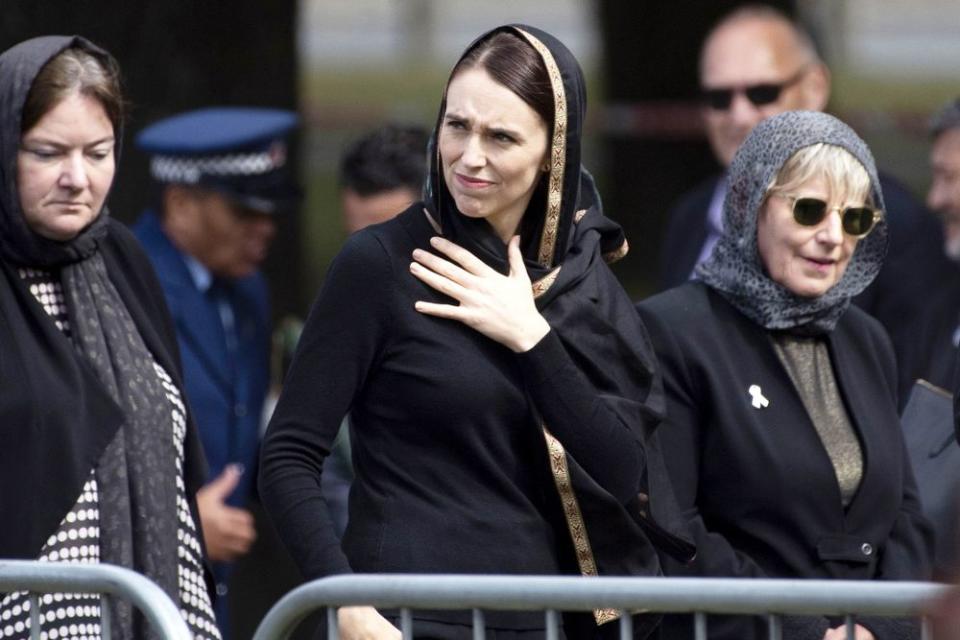
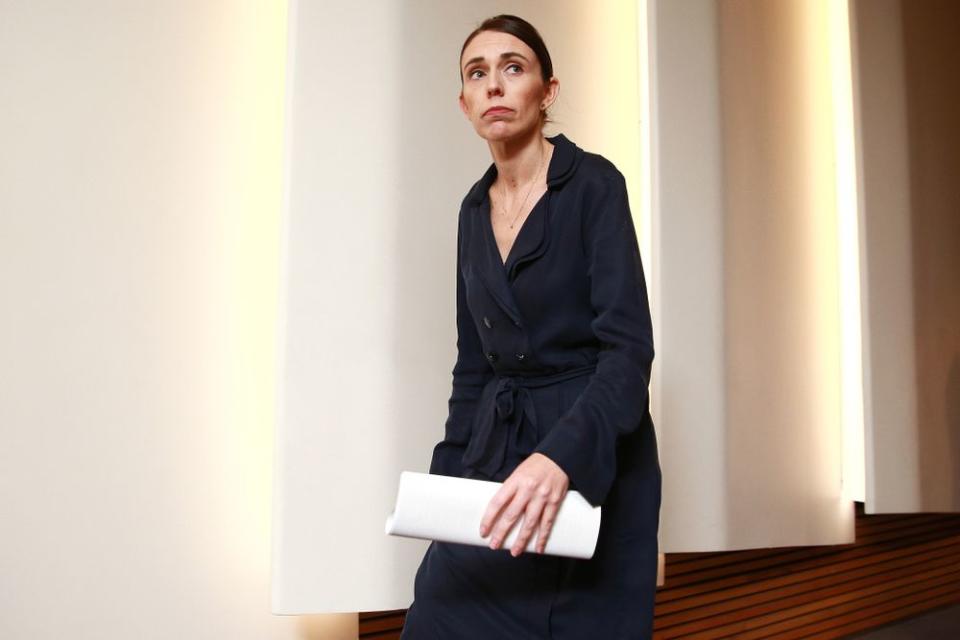
After her initial remarks, Ardern went on to tell Parliament that she would never name the shooter. Instead, she urged, “Speak the names of those who were lost rather than the name of the man who took them.”
In a political move that can seem striking to Americans, where the politics of gun use are much more fraught, Ardern quickly announced that New Zealand would ban the kinds of gun and modifications used in the Christchurch shootings.
Ardern also wore a hijab while comforting families of the victims and others in New Zealand’s Muslim community.
“I’ve gave it really little thought, it was so obvious to me that it would be the appropriate thing to do,” she reportedly said later of the decision.
After one such meeting, journalist Negar Mortazavi wrote that Ardern’s choice to wear a hijab was a commitment to inclusivity in the wake of such violence: “She tells them: You are us.”
Here’s what you need to know about the New Zealand prime minister, who was quickly vaunted to power less than two years ago.
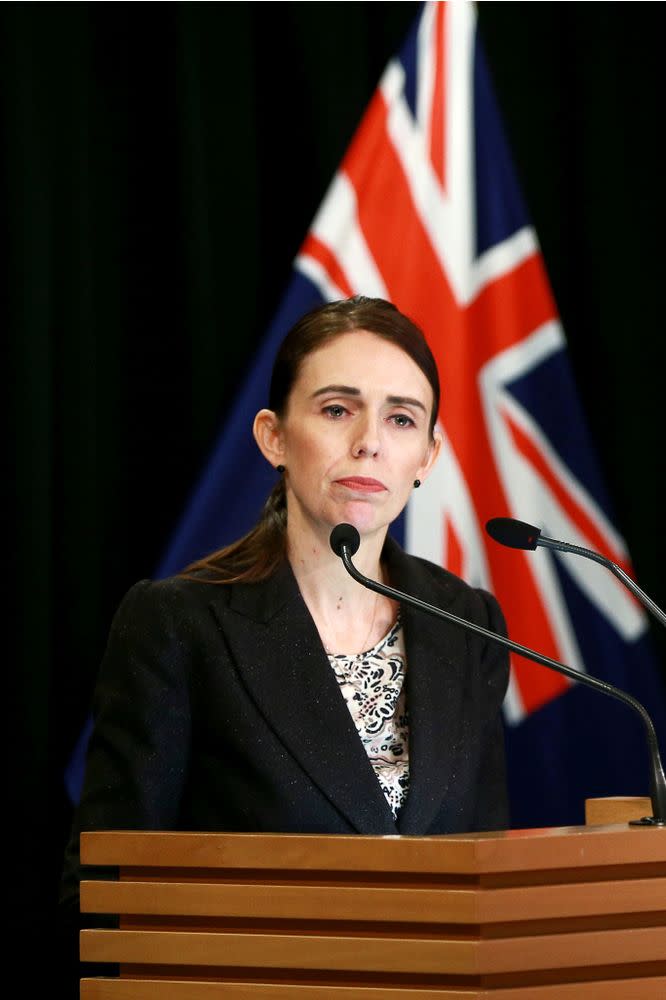
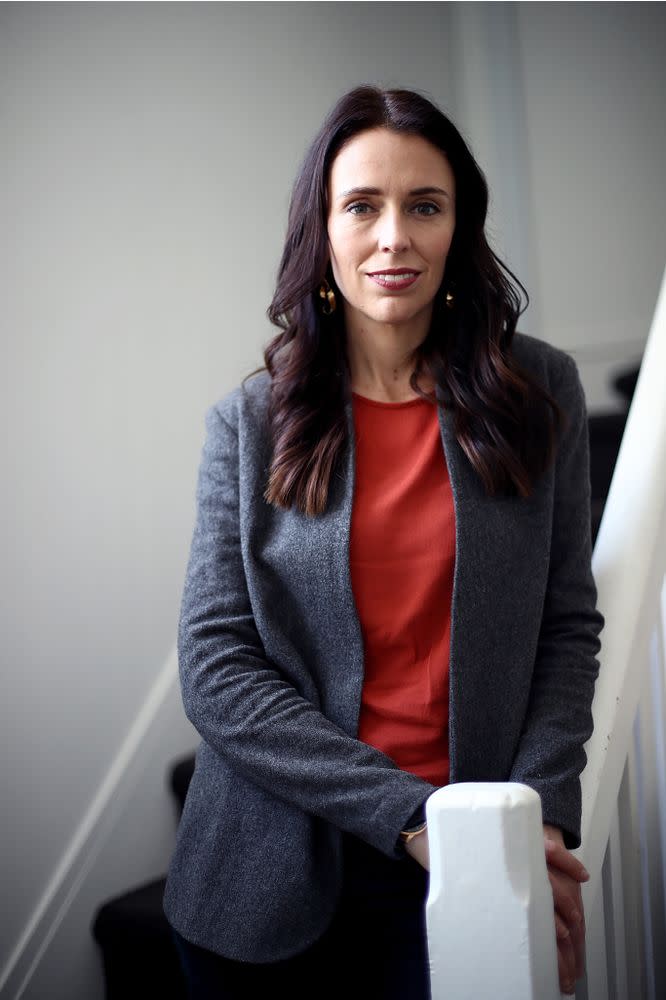
Her Early Years and Turning to Politics
Ardern spent part of her childhood in Murupara, on New Zealand’s North Island: “a town famous for the Tribesmen gang and little else,” according to the New Zealand Herald.
Raised Mormon by her mother and police officer father, her family for a time lived in front of the local police station, according to the Herald. She has described herself as an “acceptable nerd” in high school and, according to one anecdote, helped the police catch a thief from her local job when she later ran into him at a party.
Her family moved from Murupara to Morrinsville when she was growing up. In high school there, she tried to “turn debating into something as serious as 1st XV rugby,” she told the Herald.
“I was novel, but I never felt ostracized,” she said.
She told TIME in 2017, with a laugh: ““It was how my friends identified me. I was both Mormon and the sober driver—that was the benefit they saw from my [church] membership.”
In the Herald‘s telling, her political turn was partially inspired by a call from local lawmaker Marilyn Waring, whom Ardern had cold-called for a project.
“Her generosity meant an amazing amount to me,” Ardern told the Herald.
In 2008, at age 28, Ardern was elected to New Zealand’s Parliament — then the youngest sitting member, a designation Waring herself had held years earlier. She joined the center-left Labour Party.
Ardern left The Church of Jesus Christ of Latter-day Saints in 2005 over its stance on gay people, according to the Herald. In 2017 she described herself as “agnostic.”
“I have a real respect for people who have religion as a foundation in their lives. And I respect people who don’t. … I don’t spend a lot of time trying to figure it out,” she told the Herald then. “I just think people should be free to have their personal beliefs and not be persecuted for it, whether they be atheist or staunch church members.”
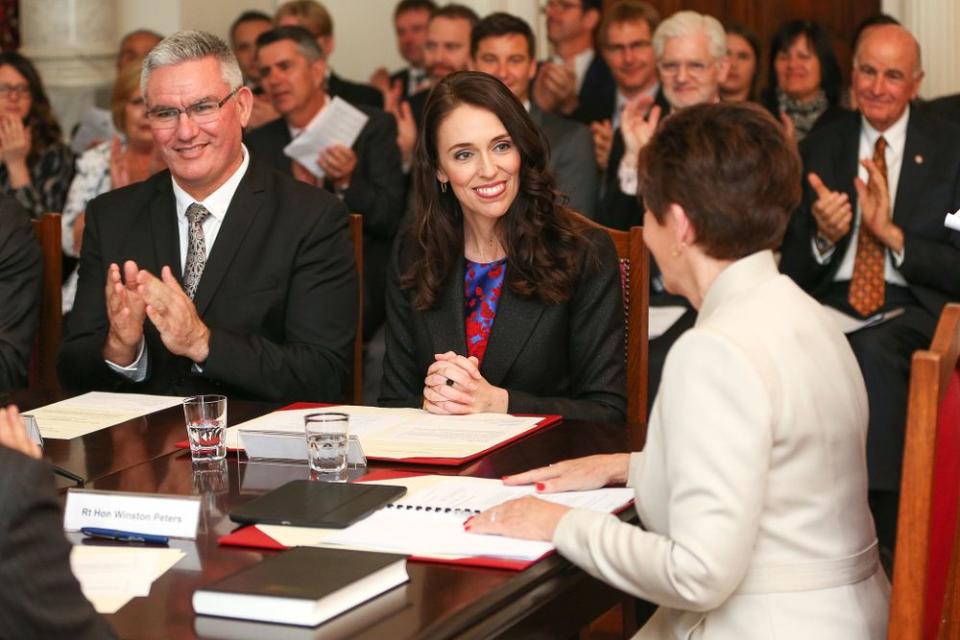
Opposition Leader — and Then Prime Minister
New Zealand’s political system and condensed election seasons (by American standards) allow for rapid reversals of fortune. Ardern’s rise is a prime example. She was serving as deputy to the Labour leader, Andrew Little, when he suddenly stepped down in July 2017, naming her as his successor. He cited dismal polling some six weeks before the general election.
While Ardern was far from an unknown on the national stage, she had downplayed any desire for a central role in New Zealand politics, telling the Herald earlier that year her goal was to be minister of children.
“I’m all about the kids,” she said in 2016, and she placed emphasis on issues such as children’s poverty and parental leave.
In replacing Little, Ardern promised a “relentlessly optimistic” campaign, according to the New York Times, which described her winning appeal to voters as bringing change to the national status quo — where the conservative National Party had been in power for nearly a decade — and focusing on a “fairer deal” for the everyday and peripheral members of New Zealand society.
According to the BBC, Ardern “targeted young New Zealanders with policies on education subsidies, housing and the environment.”
Her social media presence, sharp and charming interviews and repeatedly remarked-up smile also earned her widespread notice.
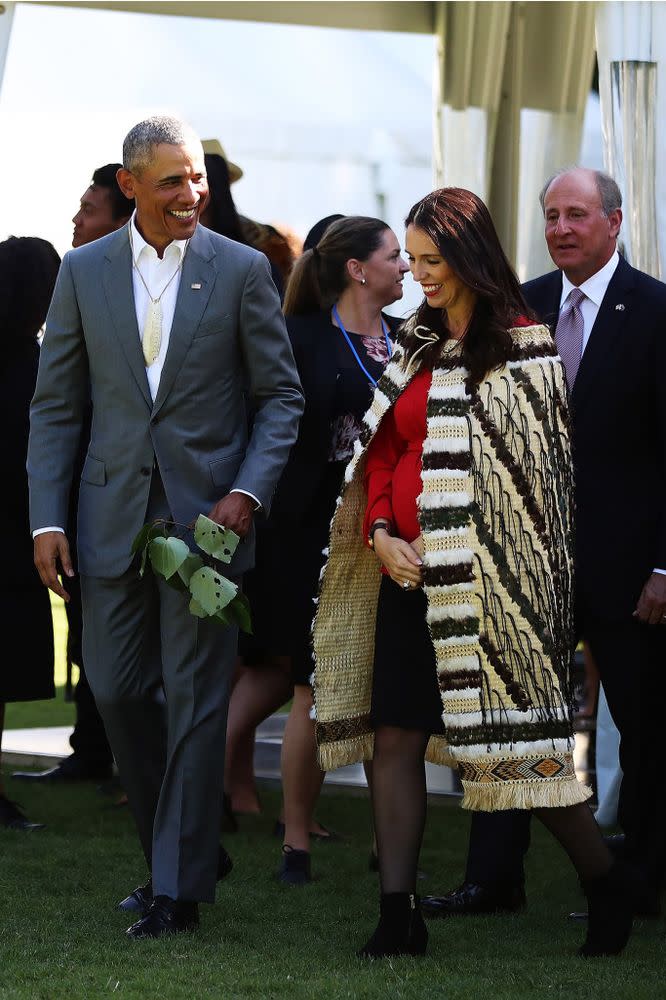

Tapped to lead Labour, the party’s poll numbers quickly showed a sharp boost in the summer and 2017 and news outlets announced “Jacindamania” was sweeping the country.
Annette King, a friend and former colleague in Parliament, later recalled talking with Little about whether he should resign as the opposition leader, according to the Herald.
King said she warned him it was a risk to stay and a risk to let Ardern step in — “but actually the indications are that Jacinda could pull it off.”
In the September 2017 election, neither major party won enough seats to form a government outright. In a further dramatic twist, Ardern learned the following month that she would be prime minister watching TV, when Winston Peters, the leader of one of New Zealand’s smaller parties, said he would support a coalition government led by her.
“It’s time for capitalism to regain its human face,” Peters said.
According to CNN, after learning she would be the next prime minister Ardern said it was an “absolute honor and a privilege … to form a government for all New Zealanders.”
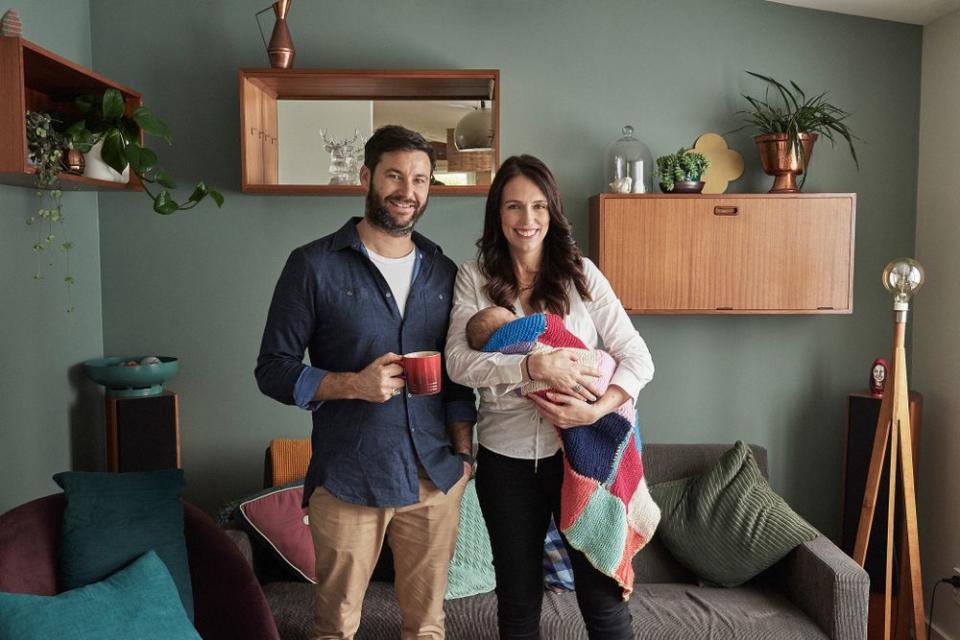
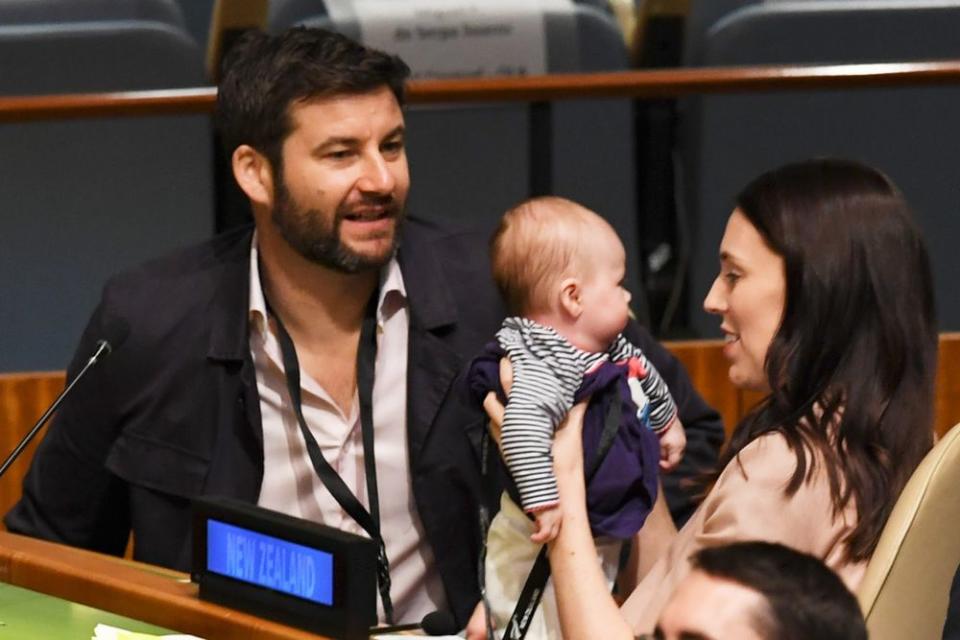
Redefining ‘World Leader’ as a Mother
Before Ardern took office, only one other world leader — Benazir Bhutto, then the prime minister of Pakistan — had ever given birth while in office. Ardern later said she learned she was pregnant while negotiating a possible coalition government in October 2017, according to the Times.
In June she gave birth to a baby girl, Neve Te Aroha Ardern Gayford, with her longtime partner, TV host Clarke Gayford. (She and Gayford met after he wrote to her about a political issue, according to the Herald. “I remember saying … ”I don’t know whether he’s the right one for Jacinda.’ I was totally wrong,” friend King told the paper earlier this month.)
On Instagram, Ardern celebrated her daughter’s birth with a brief Instagram post, writing, “Welcome to our village wee one.
Feeling very lucky to have a healthy baby girl … Thank you so much for your best wishes and your kindness. We’re all doing really well thanks to the wonderful team at Auckland City Hospital.”
After six weeks of leave, she returned to work with Gayford, her partner, planning to be a stay-at-home dad, according to the Times.
Ardern has also made headlines for being unafraid to speak out against the unequal treatment faced by female politicians, including criticizing the sexism implicit in asking women in the workplace if they planned to have children.
When her daughter was 3 months old, Ardern brought her to the United Nations. Neve has also been with her during other political appearances, such as a Facebook Live video last fall about a family assistance package, according to the Times.
Ardern told the paper last August: “You can be pragmatic and grow an economy and improve well-being and do all of the things you have an expectation governments do, but do it with a bit of heart.”

